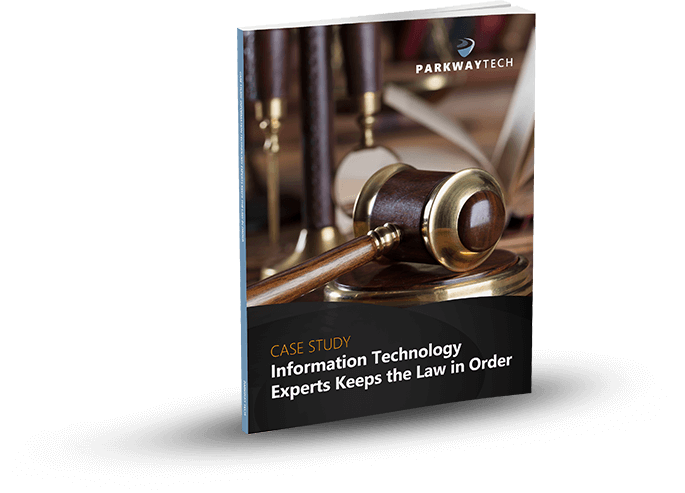How Can You Keep Your Partners Employees From Leaving Your Law Firm With Your Data?
Perhaps this comes as a surprise to some but there really isn’t a way to keep employees from stealing your data unless you plan ahead. Did you know that close to 60% of employees steal company data when they leave? And 67 % take it to their new position. This is according to a survey the Ponemon Institute conducted in 2009. At almost ten years ago, these numbers may have increased by now.
Perhaps this comes as a surprise to some but there really isn’t a way to keep employees from stealing your data unless you plan ahead. Did you know that close to 60% of employees steal company data when they leave? And 67 % take it to their new position. This is according to a survey the Ponemon Institute conducted in 2009. At almost ten years ago, these numbers may have increased by now.
According to the study:
- 65% took email lists,
- 45% took non-financial business information,
- 39% took customer contact lists,
- 35% took employee records, and
- 16% took financial information.
Only 15% of respondents’ employers performed a review to determine if digital or paper documents were walking away with their employees.
How Did These Employees Steal Data?
According to the study, most of them took digital information. How? By quietly downloading it to a USB memory stick, CD, or DVD.
How Do You Prevent Employee Data Theft?
With the increase in Bring Your Own Device to the workplace and work-from-home positions, it’s easier than ever to steal proprietary data.
There is specialized software we can use to determine if someone has copied files from your server. But we must install and implement it before their exit.
The Key Is Prevention – 6 Tips
Ask your IT service provider to use technology tools to help you keep an eye on your data. They can help you do so in the following things:
1. Protect Your Sensitive Data. Use IT controls that limit access. Your receptionist doesn’t need access to your client’s case files. Ask your IT provider for tools like Microsoft Active Directory or other identity-management solutions to ensure only those you want to access files can do so.
Protect the data itself with hard-to-guess passwords and encryption that scrambles data unless the user has access to a decryption key.
Ask your IT provider to track the use of computers, laptops, tablets and smartphones in your firm. Mobile Device Management can wipe data from mobile devices remotely if they are lost, stolen or if you believe an ex-employee has your data.
There are also products that can record everything that occurs on company devices with logging and reporting. There are legitimate software solutions for this. You can ask your IT professional to direct the software to monitor specific employees and give your managers the right to set policies to review collected data.
If you have a server, it’s possible to prevent USB drives from being connected to Windows computers. Data Loss Protection stops data from slipping through exit points such as email, instant messaging, thumb drives, file-sharing services, printers and malware.
2. Implement Backup and Virtualization Systems: Having a way to keep files, emails and more is critical to prevent both accidental and purposeful deletions. Make sure you have backups of data that are not accessible to those leaving, just in case they decide to delete your files in anger. Ask your IT provider to set up a virtual image-based copy of your IT assets that include all of the applications you use so you can access them wherever you are.
3. Develop An IT Security Policy For Employees: As your IT service company representative to help you outline the rules for downloading or removing proprietary information from your legal practice. It should also include the use of email, instant messaging and social media to ensure data isn’t transferred in this way. All rules should cover employees’ devices while at work.
Make sure your employees all sign an agreement that affirms their understanding of these rules and the importance of keeping your law practice’s data confidential. Your partners and other attorneys should be provided separate confidentiality and non-compete agreements. Partner and attorney separations should be worked out in advance.
Make sure to have proper agreements in place that allow you to seek damages if you discover that data or paper files were taken without authorization. You may not discover until months later that a former partner took off with your digital information.
4. Use Technology To Monitor Employees Who Are Planning To Leave Your Practice:
Your IT provider can implement technology that can record everything a particular employee does including uploading data, downloading data and any other activity you deem suspicious.
5. When Employees Leave, Terminate All Access To Your Systems Immediately:
The key is to move fast to cut off departing employees’ access to your firm’s network, applications, email accounts and physical files. Be sure to change passwords on any social media accounts for your business they may have used. Your IT service company can manage this for you.
Of course, anyone you fire should be escorted out of the building immediately. Don’t let them take anything from their office. You can gather their belongings for them or have someone stand guard and watch carefully while they pack up their personal items. Better to be safe than sorry.
6. Ask Your IT Provider To Review Your Digital Information After An Employee Leaves: They can review email and other activity to ensure your confidential data stayed with you and didn’t leave your office.
Some say that it ultimately comes down to trust. But as an attorney, you know that this saying doesn’t ring true. And with technology and the advice of your IT specialist, there’s no need just to hope your confidential data stays that way.
For more information on keeping your law firm’s data secure, contact the experts at Parkway Technology Solutions. We’re your go-toLegal IT Solutions advisor in Winston Salem, North Carolina. We’ll assess your IT security and implement a plan to keep your data safe.
If you found this article helpful, there are many more on our Law Blog. Here are some examples of what you’ll find.
Why Small Law Firms Across The US Need Quality IT Services & Support
Lawyers and staff now rely on modern technology, which makes it necessary for law firms to have experienced IT support readily available for troubleshooting and maintenance of equipment, applications and systems when things go sideways
What Improvements Will the Combination of CosmoLex and Tabs3 Provide to Law Offices?
At the beginning of October 2018, Tabs3 Software announced that it had acquired CosmoLex. This makes it the most complete offering of its kind.
What Are the Best Ways to Improve Law Office Cybersecurity?
As technology continues to evolve, those people threatening it adapt as well. This is also true in the legal sector where a breach in security can be devastating. Clients are demanding more from law firms by way of protection. Firms are scurrying to respond.
Can Your Legal IT Services Firm Keep Law & Order With Your Practice’s Technology?

Learn how Parkway’s Legal IT Services helps firms across North Carolina achieve better results.
Click Here
Download Our Free Report
Email address. cialis 20mg Your personal data will be used to support your experience throughout this website, to manage access to your account, and for other purposes described in our privacy policy.



